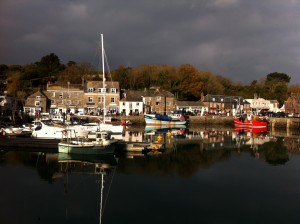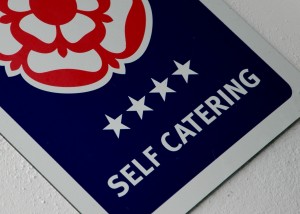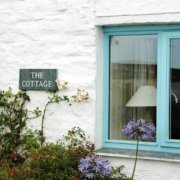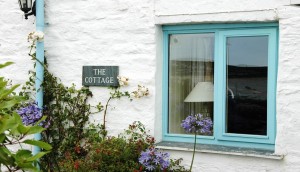
English Tourism Week (ETW) is coming! If you’re not already familiar with the concept, you may well be soon! Celebrating its 5th birthday next March, ETW is a weeklong celebration of events showcasing the quality and vibrancy of holiday cottages and other tourism businesses across the country.
Here’s everything you need to know…
What is English Tourism Week?
With English tourism contributing £106bn to the economy each year and supporting more than 2.6 million jobs, English Tourism Week was initiated by Visit England five years’ ago to showcase the quality of British tourism and the value it brings to the nation. As a result a weeklong celebration of events is held each year.
When are the celebrations?
The week of events start on March 5, 2016 and runs until March 13; giving you plenty of time in which to prepare!
How can you get involved?
There are plenty of ways you can get involved in English Tourism Week; according to Visit England there are actually 101! The emphasis is very much on coming together with businesses of all types within the industry to celebrate. Here’s the full list of suggestions….
What’s in it for you?
There are a number of ways in which you could potentially extend your promotional reach and cash in…
- Use local events to attract potential guests – the idea is that businesses of all types come together for their visitors; if there are events in your local area get involved and promote them to potential bookers!
- Entice your guests with something extra – many of the suggestions from Visit England cover giving your guests a little bit extra; maybe a cream tea or hamper made from local product. It needn’t cost the earth, but can act as that little something extra to get you the booking.
- Social media – With many businesses now taking part in ETW it’s a fantastic opportunity to extend your social media reach. Watch out for the hashtags before, during and after; they’ll give you the chance to gain new followers and connections.
- Press Attention – consider sending out a press release highlighting your involvement; the coverage will increase local awareness of your holiday home and also, if featured online, help you get a boost in search engines!
English Tourism Week Toolkit
VisitEngland has created a special toolkit for English Tourism Week, which is accessible to all holiday cottage owners and holiday home letting agents.
Here you can download free posters, logos and banners to include on your website, emails and newsletters:
When holiday letting your second home to paying guests it’s essential to take advice on suitable insurance. Boshers offer specialist holiday home insurance to holiday letting owners across the UK. For more information on how a specialist insurer can help and support your holiday home business, please give us a call on 01237 429444.


 So the clocks have gone back; the nights are certainly a little darker, as are the mornings, and the mercury in the thermometer has noticeably dropped. It may seem strange that now is an opportune time to be targeting one of the fastest growing areas in the tourism industry; the winter booking. We take a look at opportunities for increased bookings by marketing your holiday cottage during the winter months.
So the clocks have gone back; the nights are certainly a little darker, as are the mornings, and the mercury in the thermometer has noticeably dropped. It may seem strange that now is an opportune time to be targeting one of the fastest growing areas in the tourism industry; the winter booking. We take a look at opportunities for increased bookings by marketing your holiday cottage during the winter months.
 Times have changed; according to VisitEngland, a survey of 12,000 travellers revealed that 77% of people usually or always referenced TripAdvisor before selecting accommodation and 53% said they wouldn’t select somewhere that didn’t have reviews. Managing the reputation of your holiday letting property online is key to securing bookings.
Times have changed; according to VisitEngland, a survey of 12,000 travellers revealed that 77% of people usually or always referenced TripAdvisor before selecting accommodation and 53% said they wouldn’t select somewhere that didn’t have reviews. Managing the reputation of your holiday letting property online is key to securing bookings.
 Most holiday homes will now have a blog or latest news section full of lovingly crafted content; things to do, places to visit and great local food to enjoy. This is an effective way of increasing engagement with your site, and also maximising your chances of your
Most holiday homes will now have a blog or latest news section full of lovingly crafted content; things to do, places to visit and great local food to enjoy. This is an effective way of increasing engagement with your site, and also maximising your chances of your 
 As
As 
 Many holiday homeowners will proudly display their award wins and certifications on entry to, or outside their property. If your accommodation is of a high quality it’s only right that you’ll want people to know, and tasteful positioning of
Many holiday homeowners will proudly display their award wins and certifications on entry to, or outside their property. If your accommodation is of a high quality it’s only right that you’ll want people to know, and tasteful positioning of 
 So that’s it, the temperatures are beginning to fall, the school holidays are a distant memory and those visitor numbers have subsided. It’s time to take a deep breath and begin to prepare for next year. Even if your website has proven to be a real winner this summer, competition is fierce and there are plenty of things you can be doing to make sure next year exceeds your expectations.
So that’s it, the temperatures are beginning to fall, the school holidays are a distant memory and those visitor numbers have subsided. It’s time to take a deep breath and begin to prepare for next year. Even if your website has proven to be a real winner this summer, competition is fierce and there are plenty of things you can be doing to make sure next year exceeds your expectations.
 The holiday let welcome folder; so often the first point of contact that the visitor will have once they’ve made their way into your holiday home. We take a look at ten content areas to make sure that yours is a success, and adds value to their stay.
The holiday let welcome folder; so often the first point of contact that the visitor will have once they’ve made their way into your holiday home. We take a look at ten content areas to make sure that yours is a success, and adds value to their stay.
 You only get one chance to make a first impression; your dazzling holiday home will ensure guests are happy with the accommodation, but when was the last time you updated your Holiday Let Welcome Folder?
You only get one chance to make a first impression; your dazzling holiday home will ensure guests are happy with the accommodation, but when was the last time you updated your Holiday Let Welcome Folder?
 When someone visits your website the words you’ve written about your holiday cottage and the way in which you’ve written them can be the difference between a booking and a missed opportunity.
When someone visits your website the words you’ve written about your holiday cottage and the way in which you’ve written them can be the difference between a booking and a missed opportunity.